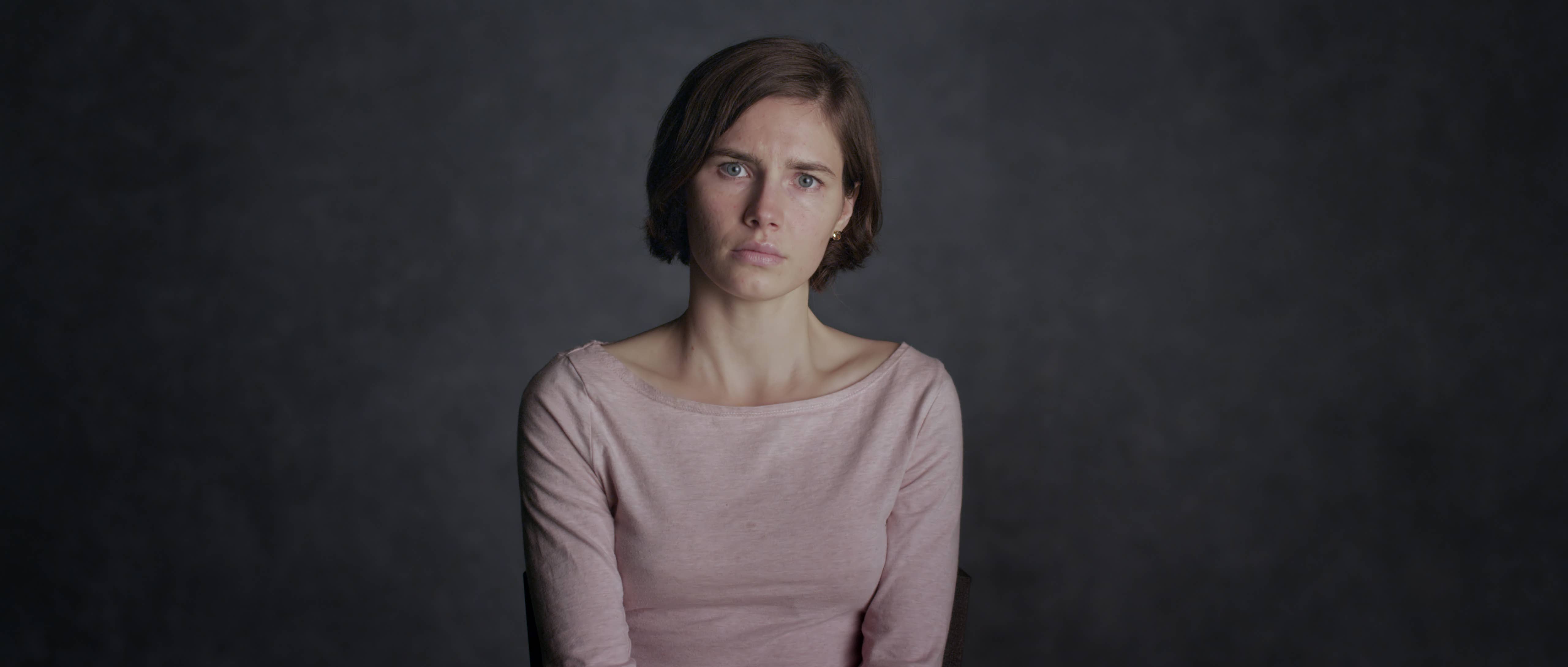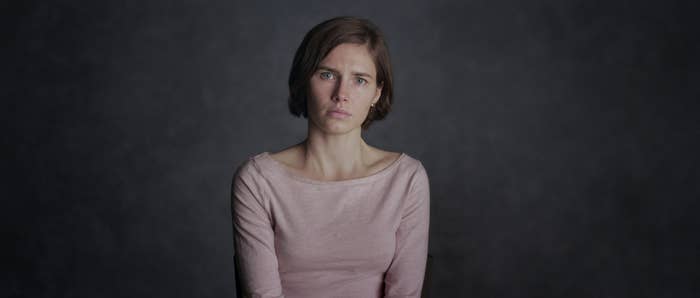
Cast your mind back to 2007, one of the most shocking and tragic events was the murder of British exchange student Meredith Kercher. At the epicentre of that case was her flat mate, American exchange student Amanda Knox and her boyfriend at the time Rafaelle Sollecito, it proved to be one of the biggest murder investigations of the decade. Despite only being suspects at the time both were subjected to a trial not just from the Italian justice system but also by the world's media. Knox in particular went through a media smear campaign that saw her private life exposed. It was literally open season for journalists and news outlets to construe their 'sexed-up' version of what was labelled the 'Trial of The Decade'. For Knox, the knock effect was that in the eyes of the world she was a sex-crazed addict who was guilty beyond reasonable doubt, media outlets even coined the infamous nickname 'Foxy Knoxy', an unwanted moniker that has followed her around even after her two acquittals (along with Sollecito).
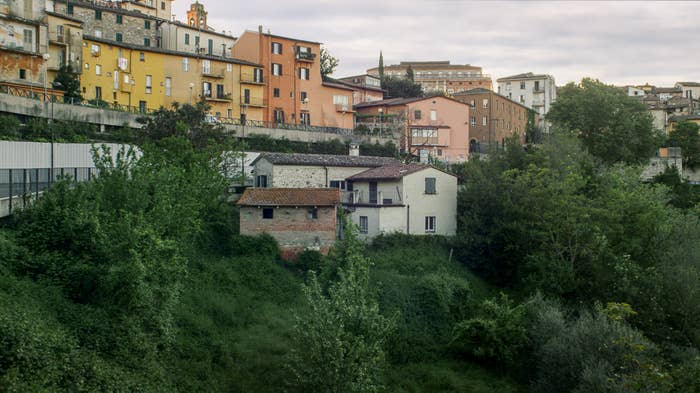
For us as an audience it played out like an over-the-top drama, ripe for the big screen, but for those involved it permanently changed their lives. Directors Rod Blackhurst (Here Alone) and Brian McGinn’s (Chef’s Table and Ferrell Takes The Field) documentary Amanda Knox finally offers a first hand look into what went down in a murder trial that reached OJ Simpson-levels of media interest.
With the documentary recently released on Netflix we spoke with both director’s to talk about the Amanda Knox we saw on TV compared to the one who they met person, the importance of looking beyond headlines and why it was essential that the memory of Meredith Kercher wasn’t forgotten amongst all the media hysteria.
How did you first come across the Meredith Kercher/Amanda Knox case? What were your initial thoughts on it at the time?
Brian: We had seen the case covered from 2007 and it was kind of hard as a news consumer not to be aware of the Amanda Knox, Rafaelle Sollecito case. I think that the thing that really started to interest us was by 2011 it was just shocking how much headlines there had been. Normally a story like this, you hear about in the news and then it's completely gone from the front pages a week or two later, even less time now in 2016. So in 2011 when this story had gone through all these massive twists and turns, and it happened so many times, I just couldn’t believe it maintained its front page status and we thought that there were a number of reasons for that. The fact that: it took place in Italy, had all these international folks involved and the fact the crime had been so terrible and tragic. So then certainly as Amanda Knox was arrested it became a matter of world press coverage.
Tell us about the first time you met Amanda, what struck you about her?
Rod: We first met Amanda about a month after she and Rafaelle were acquitted in 2011, we flew to Seattle, met with Amanda and we told her the type of film we wanted to make. Ultimately at the time I think she decided she wasn’t ready to tell her story and participate in the documentary. What we were struck by at that time was that this was a very real person and that it was not the headline version that we had been presented. Very quickly we realised that all these people were 'very real', they were not these characters that played these roles in this strange entertainment version of their own lives. We told Amanda, like we told Giuliano Mignini [the case's chief investigator] that we wanted to make a film that covered both sides of the courtroom, it was just as important to have Knox and Sollecito, just as it was important to have Mignini in the film. They are far more complex than what can be put into click bait journalism.
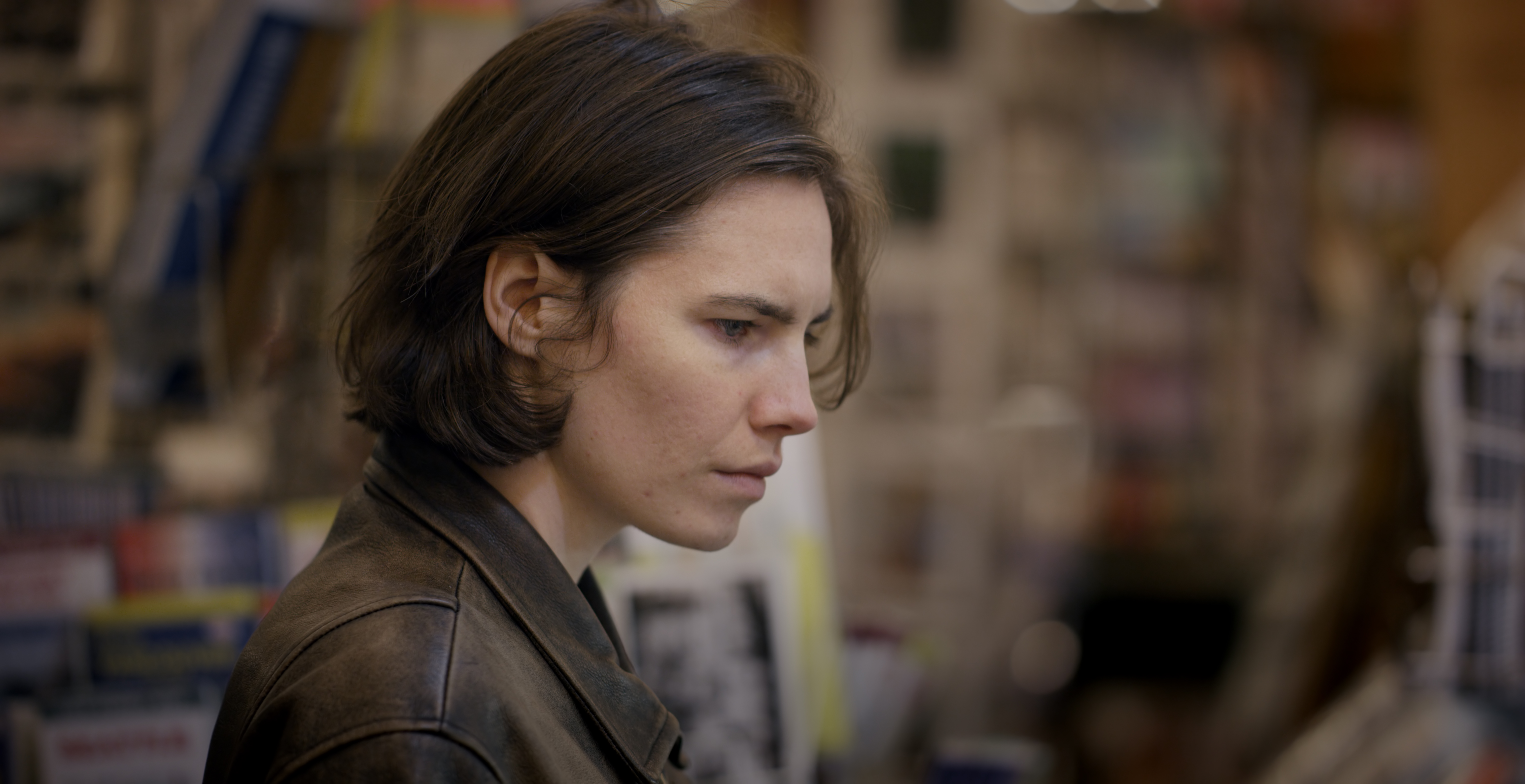
How did you develop that level of trust? Particularly with Amanda who’s reputation had been dragged through the dirt.
B: I think that it was actually difficult with everyone in the film; we not only had to convince Amanda and Rafaelle that we were not going to manipulate their words but we had to do the same thing with Giuliano who had not been fond of the way he had been covered in the American media. Even further we had to convince the independent DNA experts who quite literally never spoken to the press before, we had to wait a long time for them to actually sit on camera. To answer your question—and I would say the reason the film took five years—is that we had to be very patient. The only way you build trust in that situation is by being extremely patient and letting them come to the table. As Rod said Amanda did not want to do this documentary at first, we just assumed that the movie would never happen and literally she called us out of the blue and said "Hey, I think I do want to tell my story now". Even then we thought, after we had Amanda’s side, we weren't sure we were going to move forward with the film because we didn’t even think it was possible to get the Italians.
regardless of how you feel about Amanda’s guilt or innocence there’s an element of that modern 'Hitchcockian' dilemma
As you said Giuliano Mignini wasn’t pleased with the way the American media portrayed him. Do you think that in this documentary he’s able to do himself justice, or at least does enough to change public opinion?
R: What you see with Giuliano Mignini is that he is a complex person and that he’s trying to reconcile his position as a man of the law. His upbringing and his faith plays a large part in the way that he sees things and the way he sees world. We wanted to afford him the opportunity to talk about who he was in his own words. So people around the world are going to see what he says and it’s either going to reinforce some way that they already feel, and if people still think he’s wrong, that his conclusions were wrong, then they’re going to take fault with those words. That's because of the way people do see the story in this case, they’re so divided over the way things have played out over the years and even with the regards to the final supreme court decision, people seem to think and feel one way or another.
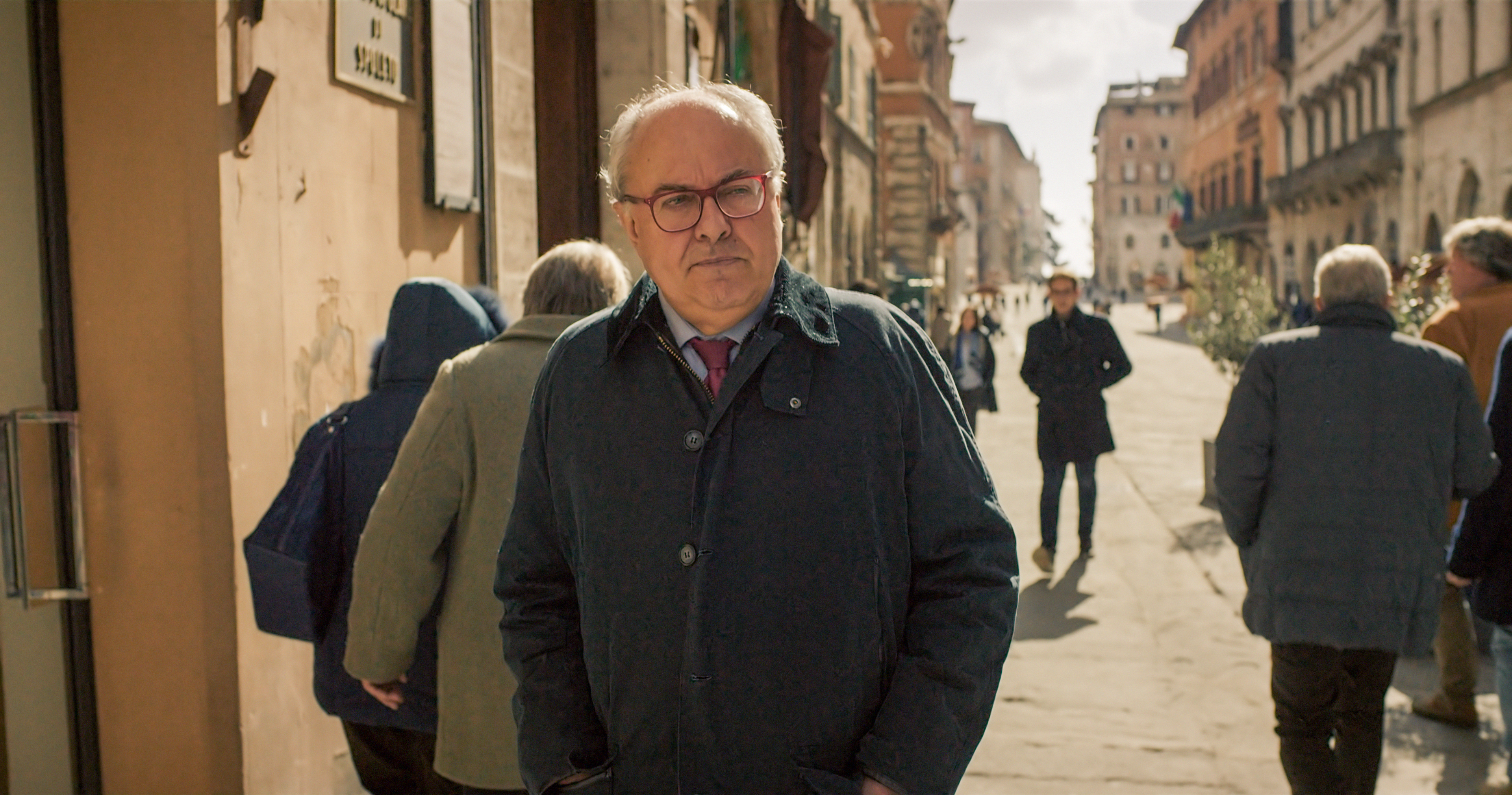
One of the poignant things in the film is how much digging journalists—like Nick Pisa—and news outlets did on Amanda Knox. Is this also a tale of caution about what we share on social media channels no matter how old or out-dated?
B: I definitely think that, in a lot of ways regardless of how you feel about Amanda’s guilt or innocence there’s an element of that modern 'Hitchcockian' dilemma. We’re actually crafting our own identities online in ways that we may not quite understand because everything that we put out into the world could be seen in so many different ways. I’m sure that if you talk to Amanda she would say that the picture that she posted at the World War II museum with the machine gun was a silly picture that she’d taken with friends. I think what that scene shows with Nick is that the context that you present anything and the way you present yourself could be changed depending on the way you look at it. It’s certainly a cautionary tale about the Internet and all of the digital trails that we use and we certainly see it in so many different stories now.
One of the big factors was that there was no contribution from the Kercher family, was there any attempt to involve them in the film?
R: We approach the Kercher family directly in 2013 and 2016 because we wanted to make sure that people didn’t lose fact about the tragedy at hand. We didn’t hear one way or the other from them and we respected that position because they have noted in the past how they felt. Also we can imagine what it would feel like for them to be constantly asked to re-examine this tragic event over and over again. In the same way Amanda Knox and Giuliano Mignini decided to participate, we felt that we would be here if the Kercher’s felt like it was something they wanted to do, and we still feel that way. Meredith is in the film because we needed to remind people of this very tragic event that had occurred and the Kercher family is in the film at several pivotal points as well, so as an audience member you can sort of track the way their handling and dealing with the story. One of the saddest moments in the film comes at the end when Arline Kercher tells a reporter outside of her house that she sort of feels lost in all of these different legal conclusions and that she doesn’t have anymore clarity or justice. You can see the cost that this eight years have had on her. You can hopefully start to see at that point at why something like this—this tragic event—was turned into this entertainment story that ultimately left everyone as victims in the end.
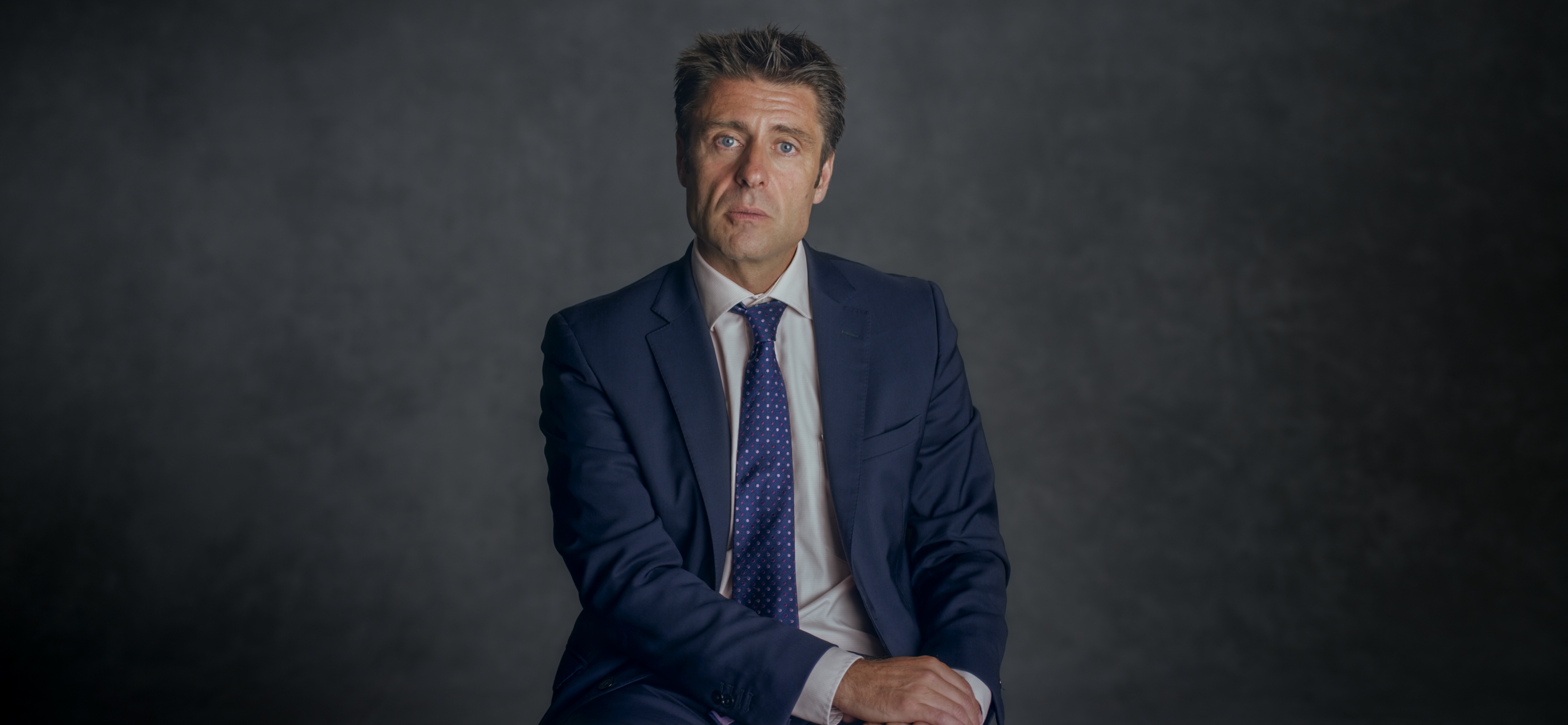
Has the experience made you reassess the way you consume information from mainstream news outlets?
B: Yeah definitely, I think the thing we’ve forgot to look for more and more is, you know—first off, look past the headline. A lot of the times what we see now is that headlines are designed to draw people in and you’ll come away with a totally different impression of what that was about or what the information contain therein is. You have to look past the headlines. The second thing is to hear out both sides and to try to figure out what’s really important to you and to get past the things that might be immediately fact baiting or salacious. That’s the thing that we really took away from making the film and certainly in our current political campaign now there’s a lot of white noise, I think both of us are trying to get past that. I know that in the UK, I was reading about the highest Google search the day after Brexit was 'What is the European Union?' and I think that kind of speaks of this emotion-driven news. I think that everyone has to ask 'What do you care more about that'; feelings things and entertainment, or do they care about making sure that they’re informed. What do we want to ask from our media going forward?
Amanda Knox is now streaming on Netflix.

